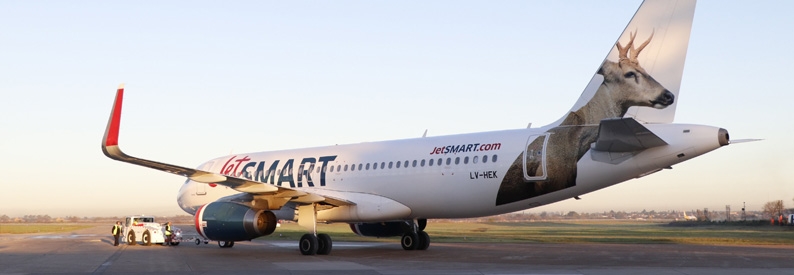Argentina to bring back fare bands for domestic flights

The Argentine government has declared that within 180 days it will set maximum fare prices and a system of fare bands for scheduled domestic passenger flights, a move that will likely come as a blow to low-cost carriers Flybondi (FO, Córdoba Int’l) and JetSMART Argentina (WJ, Buenos Aires Ezeiza) to the benefit of state-owned Aerolineas Argentinas (AR, Buenos Aires Ezeiza).
Decree 879/2021, published in the country’s Official Gazette on December 24, explained that “excess supply in a market depressed by the pandemic and the existence of rates that do not adjust to operating costs can cause the existence of predatory market rates.”
Such a phenomenon “may lead to absurd competition with non-compensatory values, which in turn may prevent carrying out commercial exploitation in conditions of safety and profitability, for a reasonable period.”
Bringing in maximum rates is “in the general interest since it avoids situations of rate abuse, protecting users, stimulating the rate balance between all cities that belong to the commercial air network, favouring accessibility between different regions,” the decree argued.
It also clamps down on “any type of economic speculation based on obtaining excessive returns after applying predatory practices that impair the provision of this public service. […] For this reason, it is necessary to reauthorise the application of maximum rates in the provision of regular commercial air transport public service provided by authorised companies.”
Similar regulations were in place in Argentina until 2016, and former president Mauricio Macri eliminated the lower band in 2018 to enable the entry of low-cost airlines. Now the government of center-left president Alberto Fernández will reintroduce them.
Flybondi and JetSmart told local media that they were “analysing the measures.” The decree came as a surprise, they said, as the possibility of rate bands had not been mentioned the previous week when airline representatives met Juan Manzur, chief of the Cabinet of Ministers, to present their growth plans.
“This is not against low-cost carriers but against an entire percentage of society that can only fly for a low cost, who cannot pay for the airline tickets. They are going to use the buses again or they are not going to be able to travel,” they protested.
The decree also creates a unified capacity and frequency allocation regime for international scheduled routes, combining criteria that previously existed in two different regulations for regional and for long-haul flights. In addition, new rules on the provision of groundhandling services will be established, whose fees will be controlled by the Argentine civil aviation authority (Administración Nacional de Aviación Civil – ANAC).
